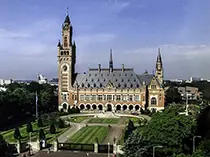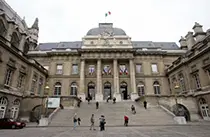Introduction
The University of Glasgow is a public research university in Glasgow, Scotland. Founded by papal bull in 1451, it is the fourth-oldest university in the English-speaking world and one of Scotland’s four ancient universities. Along with the universities of Edinburgh, Aberdeen, and St Andrews, the university was part of the Scottish Enlightenment during the 18th century.
In common with universities of the pre-modern era, Glasgow originally educated students primarily from wealthy backgrounds, however, it became a pioneer in British higher education in the 19th century by also providing for the needs of students from the growing urban and commercial middle class. Glasgow University served all of these students by preparing them for professions: the law, medicine, civil service, teaching, and the church. It also trained smaller but growing numbers for careers in science and engineering. The annual income of the institution for 2017–18 was £626.5 million of which £180.8 million was from research grants and contracts, with an expenditure of £610.1 million. It is a member of Universitas 21, the Russell Group and the Guild of European Research-Intensive Universities.
The university was originally located in the city’s High Street; since 1870, its main campus has been at Gilmorehill in the City’s West End. Additionally, a number of university buildings are located elsewhere, such as the Veterinary School in Bearsden, and the Crichton Campus in Dumfries.
Alumni or former staff of the university include James Wilson, philosopher Francis Hutcheson, engineer James Watt, philosopher and economist Adam Smith, physicist Lord Kelvin, surgeon Joseph Lister, seven Nobel laureates, and three British Prime Ministers.
Admission
As of 2018/19, the university had 21,060 undergraduate and 9,745 postgraduate students. Glasgow has a large proportion of “home” students, with almost 40 per cent of the student body coming from the West of Scotland. In the 2016-17 academic year, the university had a domicile breakdown of 71:11:18 of UK:EU:non-EU students respectively with a female to male ratio of 59:41.
For undergraduate entry, course requirements range from A*A*A* to BBB in A-levels. Glasgow had the 23rd highest average entry qualification for undergraduates of any UK university in 2015, with new students averaging 420 UCAS points, equivalent to ABBbb in A-level grades. The university gives offers of admission to 74.3% of its applicants, the 11th lowest amongst the Russell Group.
Scottish and EU students, with the exception of students from the Channel Islands, England, Northern Ireland and Wales, do not pay tuition fees. As the number of places available for Scottish and EU students are capped by the Scottish Government, students applying from the rest of the UK and outside of the European Union have a higher likelihood of an offer. For most courses, with the exceptions of Medicine, Dentistry, Veterinary Medicine and Law, the university guarantees unconditional offers to applicants who have achieved AAAA or AAABB in one sitting at Scottish Higher. The other components of the applicant’s UCAS form are only taken into account if the applicant has not achieved these grades.
SUBJECTS
1. Accounting & Finance
2. Archaeology
3. Biodiversity, Animal Health & Comparative Medicine
4. Business
5. Cancer Sciences
6. Cardiovascular & Medical Sciences
7. Celtic & Gaelic
8. Central & East European Studies [including: Baltic, Estonian, Hungarian, Lithuanian, Russian, Soviet Studies]
9. Chemistry
10. Classics
11. Comparative Literature
12. Computing Science
13. Creative Writing
14. Dentistry, Dental School
15. Economic & Social History [including: Global Economy]
16. Economics [including: Development Studies, Financial Economics]
17. Education [including: Adult Education, Community Development, Organisational Leadership, Teaching]
18. Engineering [including: Aerospace Engineering, Biomedical Engineering, Civil Engineering, Electronics and Electrical Engineering, Mechanical Engineering, Software Engineering]
19. English Language & Linguistics
20. English Literature
21. Film & Television Studies
22. Geographical & Earth Sciences [including: Geomatics]
23. Health & Wellbeing
24. History
25. History of Art [including: Textiles]
26. Infection, Immunity & Inflammation
27. Information Studies [including: Digital Media and Information Studies, Information Management & Preservation, Museum Studies]
28. Law [including: Intellectual property, Legal Practice]
29. Life Sciences (Biology)
30. Management [including: Entrepreneurship, International Business, Leadership, Marketing]
31. Mathematics
32. Medicine
33. Modern Languages & Cultures
34. Molecular, Cell & Systems Biology
35. Museum Studies
36. Music
37. Neuroscience & Psychology
38. Nursing & Health Care
39. Parasitology
40. Philosophy
41. Physics & Astronomy
42. Politics & International Relations [including: Chinese Studies, Human Rights, International Relations]
43. Psychology
44. Scottish Literature
45. Sociology [including: Criminology, Global Health, Global Security]
46. Sports Science
47. Statistics
48. Theatre Studies
49. Theology & Religious Studies
50. Translation Studies
51. Urban Studies [including: Housing Studies, Planning, Public Policy, Real Estate, Regeneration, Social Policy]
52. Veterinary Medicine
Student life
Unlike other universities in Scotland, Glasgow does not have a single students’ association; instead, there exist a number of bodies concerned with the representation, welfare, and entertainment of its students. Due to the university’s retention of its separate male and female students’ unions, which since 1980 have admitted both sexes as full members whilst keeping their own identities, there are two independent students’ unions, as well as a sports association and the students’ representative council. None of these are affiliated to the National Union of Students: membership has been rejected on a number of occasions, most recently in November 2006, on both economic and political grounds. A student-run “No to NUS” campaign won a campuswide referendum with more than 90% of the vote. In common with the other ancient universities of Scotland, students at Glasgow also elect a Rector.
The university has an eclectic body of clubs and societies, including sports teams, political and religious groups and gaming societies.
























